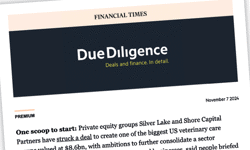The deluding thing, when you think of the British press, is to see only redtops in decline (with Lord Justice Leveson paving their path to oblivion).
Surely, as educational standards and technological investment rise, so the quality end of the market - the Times, Telegraph, Guardian and Independent - must somehow be doing better? But forget it. The truth, in harsh terms, is the precise reverse of facile assumption. While Trinity Mirror, News International, Associated and Northern and Shell still often make good profits from their embattled tabloids, fortunes seem to be heading for rock bottom at the top end of the market.
Just twenty years ago
Look back a mere 20 years, to autumn circulations in 1992. The Telegraph still stood proud at 1.05 million. The Guardian, at 425,000 or so, was 35,000 ahead of the Times. And the Thunderer itself lay locked in seemingly desperate conflict with a still fledgling Indie, hovering menacingly around 375,000.
Reckon overall sector sales at over 2.2 million, even before you add another 290,000 FTs for luck. It wasn't uniformly profitable, but the Telegraph was making good money, and the Guardian stood well in the black, too. Serious newspapers weren't fading away then; indeed, sales seemed a tad more buoyant than they had a further 20 years before, in the autumn of 1972. Their future, to be sure, was always going to involve a struggle. The congestion of tight competition made that inevitable.
But there was plenty of room for hope as production costs declined and computerisation took centre stage.
But now come, pretty brutally, bang up to date. The ABC message for 2012 is bleak. Our quality quartet went into the autumn selling a million or so fewer copies than they did two decades back: Guardian sales halved, Telegraph sales virtually cut in two, Independent circulation - though artificially impacted by its 'i' little half brother - only a quarter of former glories. Moreover, the collapse in advertising afflicting most of the press is vicious where the posh job adverts that used to sustain the Times and Guardian are concerned.
Deep in the red
Think something close to total wipe-out. And the losses that go with this eclipse start to seem daunting going on completely unsustainable.
The Guardian and Observer posted a £44.2 million deficit last year.
Times Newspapers contrived to look better at £11.6 million, but you could almost hear the sighs of disbelief over an accounting amazement that had seen headline gloom for the daily and Sunday fall from £87.7 million in 2009. More cynical number-crunchers put a realistic loss figure at £60 million. And the Independent, plugging along amid continuing cost-conscious pain, was still unable to move its fortunes out of the £12-million-to-£20-million loss range that has dogged it year after year. Lebedev accounting, like so much else in Fleet Street, tends to get vague when a mixture of titles is involved, but the two Indies and the 'i', plus an improving Evening Standard, left a £27.4 million hole in Russian bank balances - which meant a total of £80 million spent without reward since the oligarchs bought the main titles in 2009 and 2010.
Only the Telegraph managed to make its business seem relatively normal, and normally rewarding: £54.8 million in profit may be not quite what the Barclay brothers are used to in their property dealings, and 2011 was certainly even rougher than 2010, but for all that, the Telegraph remains the solitary sliver of living proof we possess that quality non-specialist papers can make money in Britain. Nevertheless, roll all four daily titles and their company results together in to a single sector, and it's hard to avoid the conclusion that no-one buys or backs quality newspapers as an investment these days. The Premiership and the serious press stand together as licences to lose money.
So what are the motives that drive the owners? And how durable will they prove as the financial storm waves grow ever higher? It's at this point, crucially, that you have to take the four case by case, because their crisis points are all different.
In perpetuity?
The Guardian, perhaps, is the simplest to understand: owned for nearly 80 years by a trust whose central objective is to sustain the paper "in perpetuity" and sitting on bank and short-term investments over £225 million, with maybe four or five times that in long-term holdings that could be sold in a life-threatening crisis. For the Scott Trust, as owners, there's only one basic question. Is "The Guardian" as defined there, only a British daily paper, produced on newsprint, distributed each morning round the nation?
Or is it, perhaps somewhat more mystically, a cyberspace gift to the world?
Maybe, on examination, that doesn't seem so simple. And maybe, as Guardian management cut back on costs and manning in search of more sustainable losses - say £10 million a year or so by 2015 - the editorial staff at the paper are taking a far more agitated view of its prospects. But there is, at least, some time, some money and some resolve to call on in this search for survival. You can't quite say that about either the Indie, or (most seismically) the Times.
Since nobody quite knows why Alexander Lebedev bought the two Independents in the first place, nor how much money he actually has in his Russian bank vaults, nobody can forecast how deep his attachment to keeping them going will prove. His London-based son, Evgeny, clearly enjoys playing the young master proprietor. His London management - particularly the Standard's formidably bright Andrew Mullins - is innovative and resourceful (see their invention of that 20p Indie lite version of the paper that could well be the shape of cheap, snappy dailies to come). But how long is a Moscow-spun piece of string?
Does the 'i' really need a full-blown Independent to play long draft of first resort? Couldn't 50 journalists produce it far more cheaply alone (as its presiding genius, Stefano Hatfield, briefly demonstrated when he started thelondonpaper)? And if the Lebedevs are so committed to the full-dress Independent, why do they keep chiselling away at its already sparse staffing and anorexic budgets?
What will News Corp do?
No easy answers there; and only a monster migraine when you move on to Rupert Murdoch's Times. For the moment - or rather, from moment to moment - News Corp retains its newspaper holdings, split off into a separate company.
Some of those papers (in Australia, for instance) make money and don't get in the way of company ambitions. Some, such as the New York Post, constantly bleed cash, but ensure a high company profile in the Big Apple. One, the Sun, is the chairman's favourite baby. The Times, by contrast, may enjoy a certain global prestige and, post-hacking, an uncertain degree of UK political access; but, in a media world that distrusts monopolies, it's a positive drag on BSkyB and related ambitions. It is shrinking, still losing money, an unwanted legacy around New York boardroom tables. Will Rupert be told to sell it (if he can find a buyer)? Will any successor News Corp chairman ponder keeping it for more than ten seconds?
News doesn’t come cheap
And it's here that the plight of the four comes together. For quality papers need quality editorial, and that quality can't be skimped – on newsprint or, increasingly obviously, online. There are all manner of challenges for newspapers as digital stalks towards centre stage. Perhaps - see Richard Desmond's Express or Star - you can defer thinking about digital dilemmas by going slowly. Perhaps - see the Mail - you can make huge strides by launching a site that stands alone and separate from Paul Dacre's domain.
But the difficulty for our quality four is that too many of their online readers are the readers they need to fashion any sort of survival strategy.
It may be that (in line with some Guardian thinking) we're in swift transition from any newsprint presence. Or it may be that print will find a place as one form of newspaper existence. No-one really knows.
They do know, though, that the serious paper that lands on your mat in the morning - or that you see waved on TV in one of those ritual reviews of the news - needs foreign correspondents, home news specialists, a full sports service, star columnists, expert city coverage and the rest. They realise that that has to continue in print, and be available online right round the globe 24/7, constantly adapted to the latest tablet or smartphone requirements.
Time to be frank: this constant churn of coverage isn't cheap. It's expensive however you shave the bills and integrate functions. Those losses on the Times, Indie and Guardian aren't coincidental. More endemic. And it's not obvious that even the Barclay brothers at the Telegraph are ready for another decade of hard pounding as the figures there grow embattled, too. Of course it would be wonderful if digital advertising could just pick up the pieces: but, priced at not much more than a tenth of print ads, it shows scant sign of being able to do so, now or perhaps ever. Of course it would be brilliant if general quality newspapers could follow specialist sheets such as the FT and charge viable prices to enter Fortress Paywall. Yet no such magic formula exists.
Look at the good-times breakdown of revenue for the average quality paper: around 65-70% from ads, the rest from cover price. Invent a cover price formula that works online and you've dealt with 30% of your problem. Now, at one-tenth the value per ad, where do you find a 70% solution? It's obvious, surely, that quality papers as we know them are doomed, that it's time to abandon ship? It's a growing perception that, if you wanted to be a big news cheese on the net, you probably wouldn't start from a print paper presence at all.
And yet…
And yet, remember, nothing's obvious at the top of the market. A loss-making Thunderer bank-rolled by an Oz octogenarian from Manhattan? A tiny tabloid underpinned by a former KGB spy? A liberal-left ex-Mancunian stalwart that boasts over 60 million unique browsers a month on Planet Earth? The most influential true blue paper of the lot whose owners live in seclusion on a Channel island? If you were writing fiction along these lines, your readers might scoff and chomp. There's nothing rational or realistic here, they'd say.
But then, that's the show - and it somehow goes on. Quality analysis will only take you so far. The rest, mouth agape, is accident, ambition, adventure and amazement. Do not, too glibly, expect that to stop.












